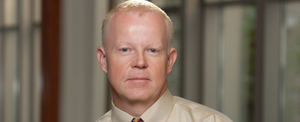Is Introversion Still a Liability in Politics?
Published: March 3, 2015 / Author: Anna North

“You could almost say that introversion has become the new cool,” said Brian R. Little, a professor of psychology at Cambridge University. In large part as a result of Susan Cain’s popular 2012 book “Quiet,” he explained, “there has been a recognition of the quiet strengths of introversion.”
But in political candidates, introversion still seems to arouse some suspicion. At Politico, S.V. Dáte writes that “the single biggest challenge facing the embryonic Jeb Bush-for-president campaign” might be “a grueling, 600-plus-day slog that requires shaking thousands of hands and chatting with countless voters all over the country, when the candidate in question would just as soon disappear into a book.” At a recent speech, he adds, “the problem was not that he wasn’t ready for prime time; it was that he looked as if he didn’t want to be near prime time.”
At New York Magazine, Jaime Fuller rounds up a number of media references to Mr. Bush as an introvert. And he and Mr. Dáte note that Mr. Bush explicitly identified himself as such at a San Francisco event in January. In an age when introversion is cool — or, at least, much-discussed — is this still a problem?
According to Timothy A. Judge, a management professor at Notre Dame who has studied personality, it may be. “I certainly do think introversion is a liability for all types of leadership, including political leadership,” he said in an email. “Extroversion is a social trait, and research we’ve conducted suggests that extroverts are more popular in both educational and work contexts.”
He believes the influence of “Quiet” may be waning. “In my experience, people dislike being labeled as introverts as much as they always have,” he said. “We are a social society, and I think in some ways (due to social networking) the ‘publicness’ of our identities has only increased.”
Like several others, he thinks that President Obama is an introvert: “From all that I’ve read about him, while he can be a gifted orator, and obviously has a keen intellect, he is not a ‘man of the people’ — he prefers to surround himself with a fairly small cadre of advisers he knows well, and disdains the rather public nature of negotiating with Congress.” And, he said, “I do believe this has hampered him.”
Still, he cautioned, being introverted doesn’t always harm a political career: “One can always think of exceptions, both in terms of winning elections and being popular.”
Related Stories




